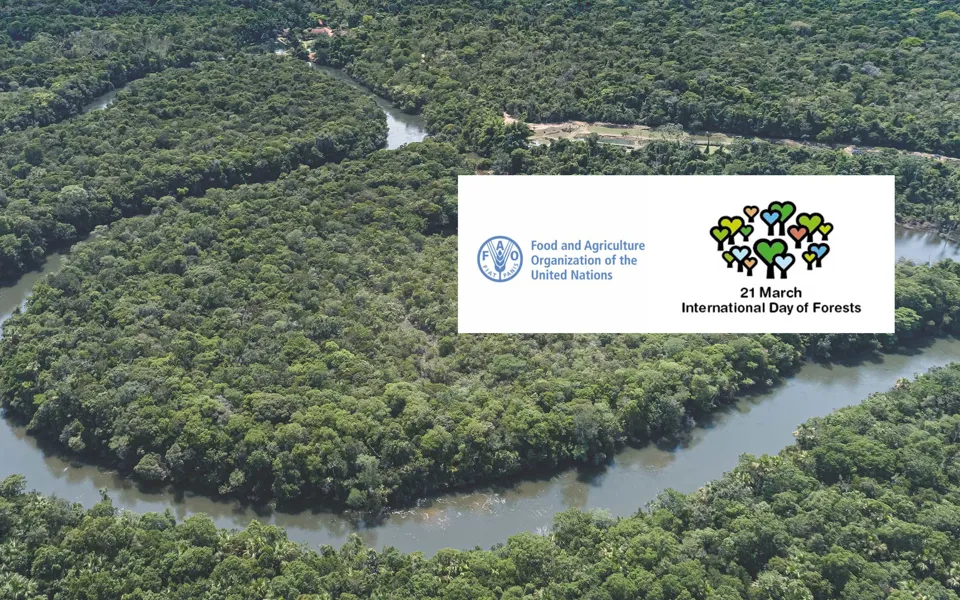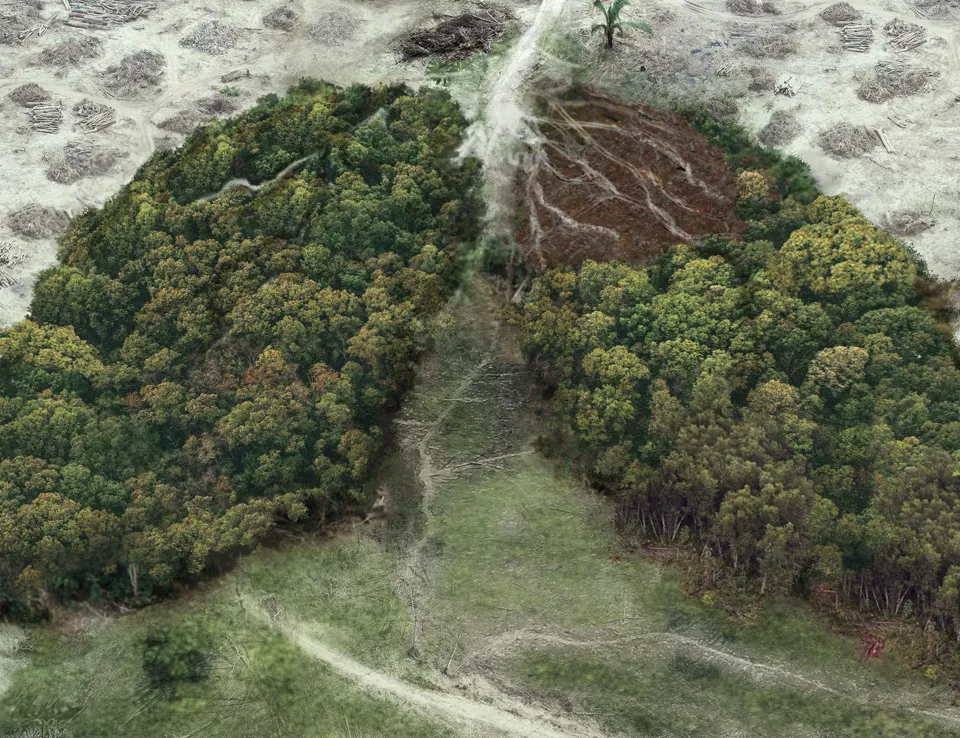
International Day of Forests 2024: Bridging the finance gap for tropical forest conservation
21 Mar 2024
Authors: Heather Conejo, Senior Consultant, Daisy Gill, Consultant, and Ryan Hogarth, Associate Director
In a natural state, tropical forests are in a fine balance, absorbing vast amounts of carbon dioxide through photosynthesis and releasing a nearly equal volume through respiration and decay.
However, in many parts of the world, human activities such as agricultural expansion and illegal logging have tipped tropical forests out of balance. As a result, deforestation (the conversion of forests to non-forest uses) and forest degradation (a reduction in forest quality) is the cause of over 10% of global GHG emissions.
The theme for International Day of Forests 2024 (March 21st) is Forests and Innovation: New Solutions for a Better World. One area in which innovative solutions are acutely needed is in financing for tropical forest conservation.
At least $130bn (£100bn) per year is required to protect the most at-risk areas of tropical forest by the end of the decade. However, finance to protect forests currently only averages between $2bn and $3bn a year. This finance gap poses a significant challenge to achieving the targets outlined in the Paris Agreement and limiting global warming. Addressing this disparity requires new approaches that involve both public and private sector investments.
Financial incentives to protect forests
One solution to the financing gap is Reducing Emissions from Deforestation and Degradation (REDD+), a framework that creates financial incentives to protect forests as carbon sinks. By assigning a value to the carbon stored in trees, REDD+ aims to mitigate deforestation while promoting biodiversity and supporting local communities.
Efforts to deliver REDD+ have occurred on multiple scales. For over 15 years, international REDD+ programmes, such as the UN-REDD Programme and the World Bank’s Forest Carbon Partnership Facility, have supported jurisdictional REDD+ programmes in which forest governments receive results-based payments from public funds for successfully reducing deforestation rates. In parallel, smaller REDD+ projects developed by private landowners or NGOs have sold carbon credits on voluntary carbon markets to private buyers that aimed to offset their own emissions.
Neither approach has sufficiently tackled the problem. Many forest governments, with the support of international organisations, have established the building blocks for jurisdictional REDD+ programmes, including national REDD+ strategies, forest monitoring systems, measurements of emissions levels and safeguarding systems to ensure social and environmental outcomes. However, results-based payments for jurisdictional REDD+ programmes have not been deployed at the pace or scale required for meaningful progress. Meanwhile, demand for carbon credits from REDD+ projects in the voluntary carbon market has been volatile and recently lacklustre, with projects facing growing scrutiny regarding the integrity of the emission reductions and the processes followed to engage and share benefits with local communities.
Lowering Emissions by Accelerating Forest Finance (LEAF) Coalition
In this context, there is now a movement to secure private finance for jurisdictional REDD+ programmes. It is hoped this approach will unlock significantly more funds than can be achieved through public sources alone. The Lowering Emissions by Accelerating Forest Finance (LEAF) Coalition is at the forefront of this movement. LEAF was launched in April 2021 as a public-private partnership to provide finance for tropical and subtropical forest conservation. It is supported by the governments of the United Kingdom, Norway and the United States and over 25 major companies, including Amazon, AirBnb, Walmart and GSK.
The LEAF Coalition has already made significant strides, mobilizing over $1 billion in finance to purchase validated and verified carbon credits from jurisdictional REDD+ programmes. Ghana and Costa Rica have become the first forest governments to sign Emission Reductions Purchase Agreements (ERPAs). These agreements, worth over $60million in total for credits from 2017 to 2019, are the first globally to involve funds from multiple corporate buyers alongside the public sector.
It is critical that jurisdictional REDD+ initiatives, such as LEAF, ensure environmental and social integrity, and do not fall foul of the same criticisms that REDD+ projects in the voluntary carbon market have faced. The carbon credits purchased by the LEAF coalition adhere to The REDD+ Environmental Excellence Standard (TREES). TREES is a robust standard offering a high integrity approach that promises results in terms of carbon, social and biodiversity safeguards.
Forest governments face many common challenges in meeting the TREES requirements and navigating the LEAF process for signing ERPAs. These include quantification, monitoring and reporting of emissions and removals; implementation of social and environmental safeguards; compliance with the TREES verification and verification process; equitable benefit sharing; and negotiating and signing ERPAs.
The UK Technical Assistance Programme for LEAF, funded by the UK Government, supports jurisdictions to overcome these challenges. The programme, delivered by Ricardo and its partners Winrock International and Climate Law & Policy, is working with selected governments to determine their specific challenges and the types of support they require. Timely and bespoke packages of technical assistance will be delivered to enable governments to meet the requirements of the TREES standard, navigate LEAF’s negotiation process and build long-term technical expertise and skills to ensure a lasting impact.
Tropical deforestation is a global issue, with profound impacts on both climate and biodiversity. Unlocking private finance for jurisdictional REDD+ offers an innovative solution to mobilise funds at a scale commensurate with the problem. Its success will depend on ensuring equitable benefit-sharing, addressing governance issues, and building capacity at the local level.





 Follow Ricardo Corporate Sustainability for regular updates
Follow Ricardo Corporate Sustainability for regular updates




